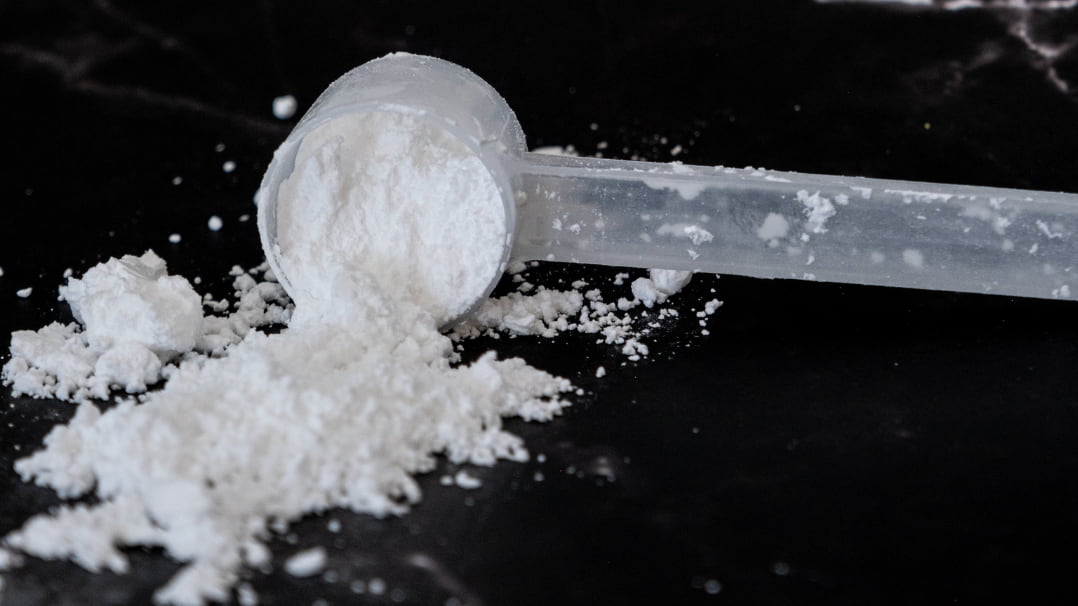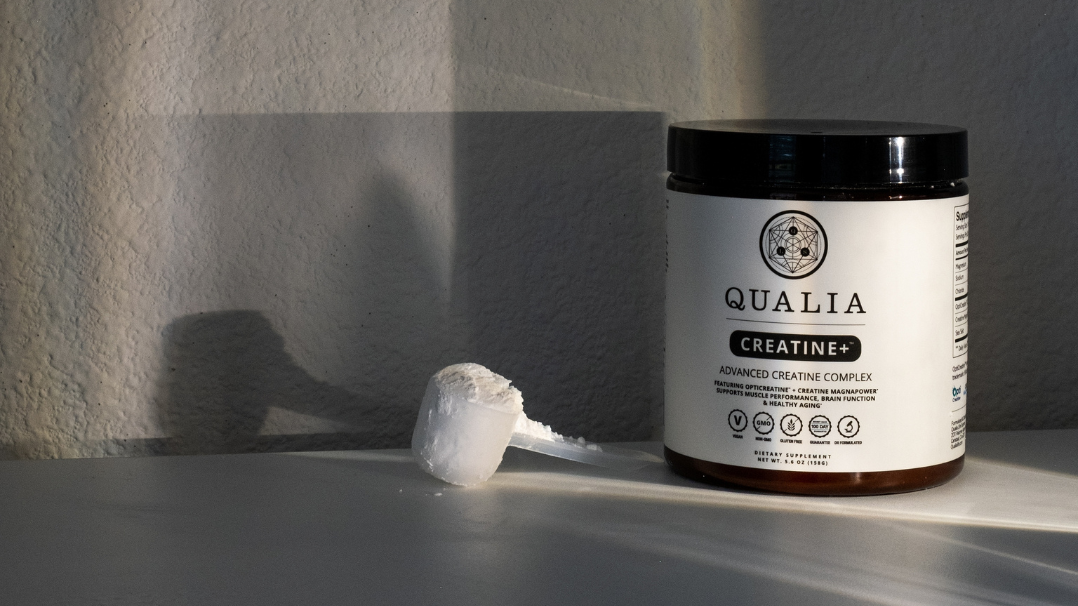Probiotics have gained attention for their potential to promote human health and well-being by supporting a balanced and healthy gut microbiota. While probiotics offer various benefits, how long it takes for these benefits to be experienced can vary between individuals.* In this article, we will explore the timeframe of probiotic action as well as some of the main factors influencing their effectiveness.
Understanding Probiotics and Their Role in Gut Health
The gut microbiota, a vast community of around 38 trillion microbes that inhabit the gut, plays a crucial role in maintaining our health through a mutually beneficial relationship with our bodies [1]. A balanced gut microbiota is vital, first and foremost, for gut health, as it helps with digestion and nutrient absorption and protects against harmful bacteria. But microbial influence extends beyond the gut: microbial metabolites also influence other essential functions in the human body such as metabolism, endocrine signaling, cardiovascular health, the immune system, and even brain health [2]. Therefore, maintaining gut health and a healthy gut microbiome (i.e., a healthy gut ecosystem) can have a profound impact on well-being. One way to do so is with the help of probiotics.
Probiotics are beneficial live microbes that support human health when taken in adequate amounts [3].* Probiotics are usually bacteria that are naturally found in the human gut. Probiotics can be consumed as dietary supplements, but they are also present in many fermented foods, including yogurts, cheeses, kefir, sauerkraut, kimchi, and miso.
Different probiotics can have different specific benefits, but, in general, there are actions believed to be shared by most probiotics. These include: promoting a gut environment that favors the growth of beneficial species, supporting a balanced and stable gut microbiota, supporting healthy microbial metabolism, promoting resistance to detrimental microorganisms, and supporting healthy gastrointestinal function [3].* As a consequence of these actions, probiotics may provide benefits to various aspects of human health, including immunity, antioxidant defenses, gastrointestinal and digestive health, cardiometabolic health, skin health, mood, and cognition [4–9].*
Expected Timeframes for Probiotic Benefits
How soon the benefits of probiotics are felt varies between individuals and depends on several factors. Some individuals may experience noticeable benefits relatively quickly, while others may require a longer duration of consistent probiotic intake to experience beneficial changes.*
Factors that influence probiotic effectiveness include:
Individual factors
Age, diet, and overall health are among the many factors that can affect how well and how quickly probiotics work. For example, older individuals tend to have a less diverse gut microbiota [10], which may influence how probiotics interact with existing gut bacteria. Similarly, a healthy and diverse diet is essential for probiotic bacteria to thrive [11,12].Individual characteristics of the gut microbiota
The effectiveness of probiotics can vary significantly from person to person due to the unique composition of each individual's gut microbiota. The existing community of microorganisms in the gut may influence how a probiotic interacts with resident microbes to produce beneficial effects within the gut environment.*Strain-Specific Actions
There are many microbial species that can be used as probiotics and, within each species, there can be many different strains. A strain is a group of organisms within a species that shares certain specific genetic characteristics not found in other members of the same species. Different probiotic strains may have unique benefits that may manifest at different times after starting intake.*Quality and viability of probiotic products
Most probiotics are fragile. Many require refrigeration and are sensitive to exposure to air and moisture, which occurs repeatedly when probiotic containers are opened and closed for multiple servings. This can affect their viability, and consequently, their efficacy.
In general, you may notice gastrointestinal benefits within a few days, namely in minor digestive issues such as abdominal discomfort, hard stools, loose stools, gas, bloating, etc. Other benefits, particularly those related to general health support, may develop within a longer time frame that may range from weeks to months.*
Probiotic Benefits
Support of Digestive Comfort
Probiotics promote a healthy balance of gut flora and thereby support digestive health and gastrointestinal performance. This may be experienced as smooth digestion [13,14]. A well-balanced gut flora reduces the likelihood of abdominal discomfort, digestive issues, and bloating. Probiotics may also help alleviate gas and bloating and promote regular bowel movements, contributing to overall comfort and digestive regularity. These benefits are often experienced within 1-2 weeks and can continue to build with longer supplementation.* For example, Akkermansia muciniphila is a bacteria that lives in the mucus layer of the human gut. Akkermansia plays an important part in maintaining gut health because it degrades mucus to use it as energy and, in doing so, stimulates its renewal and helps maintain a healthy gut environment.
Physical Well-Being
Probiotics may support physical well-being by addressing underlying imbalances in the gut microbiota that may contribute to feelings of low energy and physical discomfort. By helping the body function optimally with the help of a healthy gut microbiota, some probiotics may promote a sense of vitality and overall health. You may experience reduced physical fatigue, restful sleep, and a sense of physical resilience and well-being.*
Positive Changes in Mood and Energy Levels
The gut and brain are in constant communication via the gut-brain axis, particularly through the Vagus nerve and through microbial metabolites absorbed into the bloodstream. When the gut microbiota is healthy and balanced, it can send signals to the brain that promote a positive mood and healthy responses to stress [15–17].*
Certain probiotics may have a positive impact on mood and mental energy by supporting a balanced gut microbiota. Probiotics (and prebiotics) that do so are known as psychobiotics [18–20]. If you’re taking a psychobiotic, you may start feeling more positive, with a clearer mind, and better able to cope with stress, manage your emotions, and make healthy choices. The brain health benefits of psychobiotics generally take longer to experience and should be expected to gradually build over months, while the digestive health benefits are typically experienced within days to weeks.*
What to Expect When Starting Probiotics
When starting probiotics, it’s possible to experience mild digestive symptoms as your gut ecosystem adjusts. These can include a temporary increase in bloating and gas, mild stomach discomfort, and changes in bowel movements. These symptoms usually appear within the first few days of starting probiotics and generally return to normal within one or two weeks, as your body adapts.*
To minimize the likelihood of discomfort, you may start with a lower dose and gradually increase it as your body gets used to the probiotics. Taking probiotics with food may also help ease digestion and reduce the chance of stomach upset. Staying hydrated and maintaining a fiber-rich diet can further support the growth of beneficial bacteria and support regular bowel movements. If symptoms persist beyond two weeks, switching to a different probiotic strain or product may be necessary to find the best fit for your gut health.*
Maximizing the Benefits of Probiotics
Probiotics play a crucial role in supporting gut health, digestion, and immune function, but to fully reap their benefits, it’s essential to take them consistently and support them with a gut-friendly lifestyle. By maintaining a consistent probiotic routine, nourishing beneficial bacteria with prebiotics, and adopting healthy lifestyle habits, you can optimize the effectiveness of probiotics and promote long-term digestive wellness.*
Consistency in Consumption
One of the keys to maximizing the benefits of probiotics lies in regular intake. Probiotics do not permanently colonize the gut—they interact with the resident population to support their growth. Therefore, they need to be replenished regularly to maintain their positive effects on digestion, immunity, and gut balance. Inconsistent intake may lead to fluctuations in bacterial levels, possibly reducing their overall impact. To ensure consistency, establish a routine that aligns with your lifestyle—e.g.: taking probiotics with breakfast, setting a daily reminder, or integrating them into your supplement regimen. Some probiotics work best when taken with food, while others can be consumed on an empty stomach, so following the specific instructions for your chosen supplement is important to optimize their efficacy.*
Supporting Probiotics with Prebiotics
Prebiotics are compounds that confer health benefits by nourishing the gut microbiota, i.e., they act as food for gut microbes and support the growth of beneficial bacteria [21].* Prebiotics are a vital component of gut health, as they help beneficial bacteria thrive. Prebiotics are commonly found in high-fiber foods, which are plant-based and contain complex sugars (polysaccharides) that humans cannot fully digest. These sugars, such as resistant starch, inulin, lignin, pectin, beta-glucans, fructo-oligosaccharides, and galacto-oligosaccharides (GOS), are broken down by microbes, which use them as fuel. Prebiotics can also be taken in supplement form [22]. Combining probiotics and prebiotics helps create an optimal environment for beneficial gut microbes to thrive.*
Lifestyle Factors Enhancing Probiotic Efficacy
A well-balanced diet rich in whole foods, fiber, and fermented products is essential to ensure a healthy gut microbiome. Beyond diet, other lifestyle factors also play a crucial role in maximizing probiotic benefits. Managing stress, for example, can be particularly important, as prolonged stress can disrupt gut health and affect the effectiveness of probiotics [23]. Engaging in relaxation techniques such as meditation, deep breathing, or yoga may help maintain gut balance. Additionally, regular light or moderate physical activity promotes healthy digestion and gut motility, further enhancing the effects of probiotics [24]. By adopting these habits, you can create a supportive environment for probiotics to work efficiently and contribute to overall well-being.*
Qualia Probiotic+ for Optimal Gut Health
At Qualia, we believe that the best approach to support a healthy gut ecosystem and promote gut balance and resilience is through the combined actions of complementary compounds. As mentioned above, taking probiotics along with prebiotics may help optimize their benefits. Taking both is a more comprehensive approach to gut health support that may help promote a healthy composition and activity of the gut microbiota in ways that are different but complementary [6,25]. The same principle applies to other compounds that may support and complement the activity of probiotics and prebiotics.*
Qualia Probiotic+ is a combination of probiotics, prebiotics, postbiotics, fermented foods, herbs, and digestive enzymes that work complementarily to support digestive health. We developed Qualia Probiotic+ with the goal of creating a product capable of providing comprehensive support for gut health, gastrointestinal performance, and the gut-brain axis.* Check out Qualia Probiotic+ Ingredients to learn more about our all-in-one gut health product.
*These statements have not been evaluated by the Food and Drug Administration. This product is not intended to diagnose, treat, cure, or prevent any disease.
References
[1]R. Sender, S. Fuchs, R. Milo, PLoS Biol. 14 (2016) e1002533.
[2]K. Hou, Z.-X. Wu, X.-Y. Chen, J.-Q. Wang, D. Zhang, C. Xiao, D. Zhu, J.B. Koya, L. Wei, J. Li, Z.-S. Chen, Signal Transduct. Target. Ther. 7 (2022) 135.
[3]C. Hill, F. Guarner, G. Reid, G.R. Gibson, D.J. Merenstein, B. Pot, L. Morelli, R.B. Canani, H.J. Flint, S. Salminen, P.C. Calder, M.E. Sanders, Nat. Rev. Gastroenterol. Hepatol. 11 (2014) 506–514.
[4]V.E. Vera-Santander, R.H. Hernández-Figueroa, M.T. Jiménez-Munguía, E. Mani-López, A. López-Malo, Molecules 28 (2023) 1230.
[5]S. Gul, E. Durante-Mangoni, J. Clin. Med. Res. 13 (2024) 1436.
[6]H.-Y. Li, D.-D. Zhou, R.-Y. Gan, S.-Y. Huang, C.-N. Zhao, A. Shang, X.-Y. Xu, H.-B. Li, Nutrients 13 (2021) 3211.
[7]N.-M. Maftei, C.R. Raileanu, A.A. Balta, L. Ambrose, M. Boev, D.B. Marin, E.L. Lisa, Microorganisms 12 (2024).
[8]S. Mörkl, M.I. Butler, A. Holl, J.F. Cryan, T.G. Dinan, Curr. Nutr. Rep. 9 (2020) 171–182.
[9]H. Den, X. Dong, M. Chen, Z. Zou, Aging 12 (2020) 4010–4039.
[10]S.V. Lynch, O. Pedersen, N. Engl. J. Med. 375 (2016) 2369–2379.
[11]M.L. Heiman, F.L. Greenway, Mol. Metab. 5 (2016) 317–320.
[12]X. Huang, Y. Gao, W. Chen, Q. Hu, Z. He, X. Wang, D. Li, R. Lin, Eur. J. Nutr. 61 (2022) 3915–3928.
[13]A.P.S. Hungin, C.R. Mitchell, P. Whorwell, C. Mulligan, O. Cole, L. Agréus, P. Fracasso, C. Lionis, J. Mendive, J.-M. Philippart de Foy, B. Seifert, K.-A. Wensaas, C. Winchester, N. de Wit, European Society for Primary Care Gastroenterology, Aliment. Pharmacol. Ther. 47 (2018) 1054–1070.
[14]S. Rau, A. Gregg, S. Yaceczko, B. Limketkai, Nutrients 16 (2024) 778.
[15]C.R. Martin, V. Osadchiy, A. Kalani, E.A. Mayer, Cell Mol Gastroenterol Hepatol 6 (2018) 133–148.
[16]S. Cussotto, K.V. Sandhu, T.G. Dinan, J.F. Cryan, Front. Neuroendocrinol. 51 (2018) 80–101.
[17]B. Bonaz, T. Bazin, S. Pellissier, Front. Neurosci. 12 (2018) 49.
[18]T.G. Dinan, C. Stanton, J.F. Cryan, Biol. Psychiatry 74 (2013) 720–726.
[19]A. Sarkar, S.M. Lehto, S. Harty, T.G. Dinan, J.F. Cryan, P.W.J. Burnet, Trends Neurosci. 39 (2016) 763–781.
[20]P. Oroojzadeh, S.Y. Bostanabad, H. Lotfi, J. Mol. Neurosci. 72 (2022) 1952–1964.
[21]G.R. Gibson, R. Hutkins, M.E. Sanders, S.L. Prescott, R.A. Reimer, S.J. Salminen, K. Scott, C. Stanton, K.S. Swanson, P.D. Cani, K. Verbeke, G. Reid, Nat. Rev. Gastroenterol. Hepatol. 14 (2017) 491–502.
[22]D. Davani-Davari, M. Negahdaripour, I. Karimzadeh, M. Seifan, M. Mohkam, S.J. Masoumi, A. Berenjian, Y. Ghasemi, Foods 8 (2019) 92.
[23]A. Madison, J.K. Kiecolt-Glaser, Curr. Opin. Behav. Sci. 28 (2019) 105–110.
[24]L. Bi, G. Triadafilopoulos, Clin. Gastroenterol. Hepatol. 1 (2003) 345–355.
[25]N. Al-Habsi, M. Al-Khalili, S.A. Haque, M. Elias, N.A. Olqi, T. Al Uraimi, Nutrients 16 (2024).








No Comments Yet
Sign in or Register to Comment